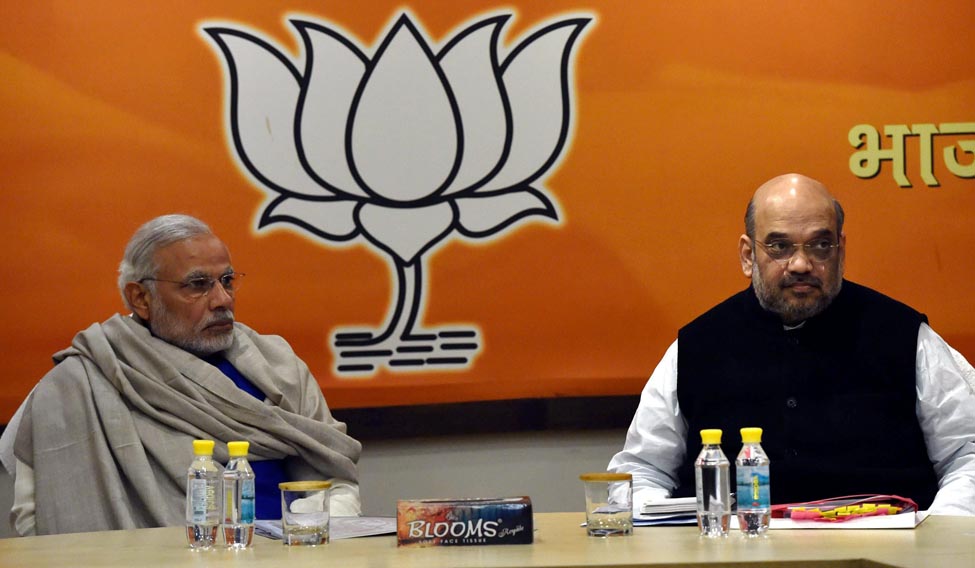From the beginning, it was clear that the assembly election in Gujarat was not going to be like any other. This was not to be an election in which the result would have been a foregone conclusion even before the votes were polled.
After all, Prime Minister Narendra Modi and BJP president Amit Shah were not in Gujarat, Congress president-elect Rahul Gandhi was infusing a new spirit into the party and three youngsters—Hardik Patel, Jignesh Mevani and Alpesh Thakore—were leading the movements of patidars, dalits and OBCs, respectively. To add to it, people were facing problems because of GST and demonetisation. Not to forget the anti-incumbency due to 22 years of BJP rule.
But nobody, not even the arch rivals the BJP and the Congress, would have thought that this would perhaps be such a close contest, though nothing could be said till the results are out. And there was a reason behind it. Every time since 2002, it was thought that the Congress would do well. But the results proved otherwise.
Riding on Hindutva wave post 2002 riots, Modi clinched victory for the BJP. In 2007, the BJP retained power again in the name of development. In 2012, the BJP repeated its victory even as Modi was being projected as the prime ministerial candidate for 2014 Lok Sabha election.
People believed in everything that Modi said and rejected everything that the Congress said, even if they were telling the truth. Though the difference of vote share between the two parties remained around 10 per cent, the seat difference told a different story. The BJP was far ahead.
The polarisation was deep rooted after the 2002 riots. The BJP somehow had succeeded in “driving home the point” that Gujarat was safe only under its rule or else riots would take place.
Soft Hindutva is still practiced although neither the BJP nor the Congress has uttered the “M” word.
It all began in August. BJP was basking in the glory of development when Vikas gando thayo che (development has gone berserk) campaign hit the social media. The BJP replied with the campaign “I am development, I am Gujarat”. The war on the social media had begun even as the foot soldiers were readying themselves for the D-day.
Hardik was drawing crowds and after Modi went to New Delhi as the prime minister in 2014, his successor Anandiben Patel could not last long. Though she stepped down, citing age, observers believe Patidar quota stir was the reason. Vijay Rupani, who succeeded her, tried his best, but he had his limitations. Even those within the BJP found Anandiben Patel more effective.
For the BJP, now everything was dependent on Modi. He actually took on to himself as if it was a referendum on him. Unlike in the past, he had nobody to blame at the Centre or even at the state level. Playing a victim card is what he opted for while defending government's GST and demonetisation.
As the campaign reached its fag end, he brought in references of Pakistan in Gujarat polls.
Rahul Gandhi, on the other hand, took on the Gujarat government head on. Asking 14 questions to the prime minister, at almost every meeting that he addressed, he spoke about development of only a handful of industrialists and not the entire state. He started getting response, probably because he was talking about issues that mattered to people.
Amid all these, Hardik was drawing huge crowds, both in rural and urban areas. He exhorted his supporters and others to oust BJP from power. He called Shah “General Dyer” for allegedly instructing to fire on Patidars post August 25, 2015 meeting of Ahmedabad. Whether the patidars vote for the Congress, like they did in 2015 panchayat elections remains to be seen.
Although they may not admit it, tension is evident in both BJP and Congress camps.
After the first phase of elections, both the parties are claiming to have performed well. Now the battle is for the second phase of elections on Thursday, which has several urban seats that are BJP's stronghold.
A victory for the BJP will prove Modi and Shah's supremacy. A win for Congress will be a shot in the arm for the party president-elect as it will improve his image at the national level ahead of the 2019 Lok Sabha polls.






